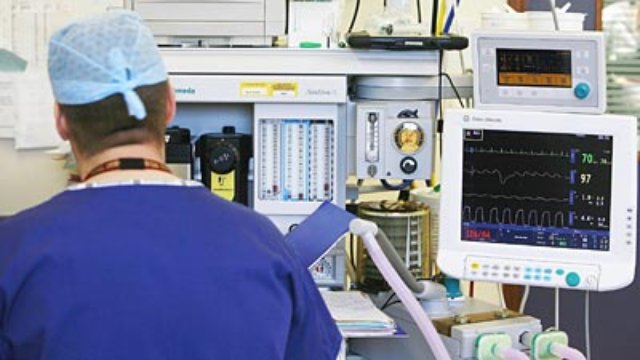On Air Now
The Capital Weekender with Kem Cetinay 7pm - 10pm
27 September 2016, 12:43 | Updated: 27 September 2016, 12:44

Cancer charities have insisted it is unacceptable that a key waiting time target for treatment has not been met.
New figures show that between April and June, 89.7% of people who were urgently referred began treatment within 62 days - less than the Scottish Government's target of 95% and down slightly from 90.2% in the first three months of 2016.
Just two of Scotland's 14 regional health boards met the target, with NHS Borders and NHS Lanarkshire treating 97.2% and 95.4% of patients within 62 days.
Of the 10 types of cancer, breast cancer was the only form of the disease for which the target was met, with 96.4% of patients treated within two months of referral.
In comparison, 77.2% of those referred for urological cancers - such as bladder, kidney, prostate and testicular cancer - began their treatment within this time.
Health Secretary Shona Robison said: "I want health boards to work even harder to improve early access to diagnostics so that patients can get a decision on whether they need treatment or not as quickly as possible.
"This is where we are focusing our efforts - with an additional £2 million invested this August to support immediate improvements in diagnostic and treatment capacity.''
But Gregor McNie, Cancer Research UK's senior public affairs manager in Scotland, said: "At a time when cancer is Scotland's most common cause of death, it's unacceptable that this target hasn't been met.
"Patients must be diagnosed and treated swiftly if they are to have the best chance of survival. Early diagnosis of patients is a priority in Scotland's new cancer strategy, but we want to see fast progress to ensure patients are not left waiting too long.''
Trisha Hatt, Macmillan Cancer Support's strategic partnership manager, said it is "deeply disappointed that the cancer waiting times have been missed yet again''.
She added: "We know that 75% of Scots are diagnosed late. Being treated late as well all adds up to cause real problems getting appropriate care for cancer patients - particularly for those with immediate palliative care needs.''
The figures also show that the target for 95% of cancer patients to begin treatment within 31 days of a decision being made on how best to help them was achieved.
Overall for April to June, 95.7% of people began receiving care within a month of the decision being made to treat them, up from 94.9% the previous quarter.
This target was met by all but two of the health boards, with NHS Lothian and NHS Greater Glasgow and Clyde treating 94.6% and 94.3% within 31 days respectively.
While 87.3% of those with urological cancers started treatment within a month of a decision being made, the 31-day target was met for the other nine types of the disease.
Ms Robison said: "Prompt cancer treatment is vital - and that's why we have set rigorous standards in this area. Today's figures show that, between April and June, the percentage of patients who started treatment within 31 days of a doctor's diagnosis has improved, with 95.7% of patients treated within the target time-scales. The average wait to start treatment stands at six days.
"We are continuing to implement our new £100 million Cancer Strategy which will drive improvements in access to cancer care and invest in the prevention, detection, diagnosis, treatment and after-care for cancer patients - as well improving treatment waiting times.''